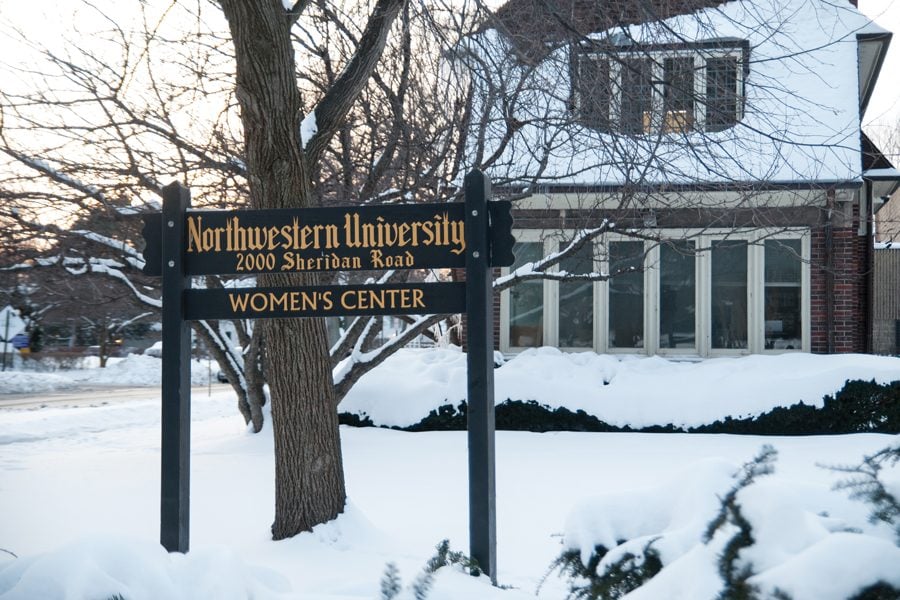Latinx healing group seeks to build community, take steps to self-care
Hongrui He/The Daily Northwestern
The Women’s Center at 2000 Sheridan Rd. Counseling and Psychological Services counselors started a healing space for Latinx students that meets twice a month at the Women’s Center.
March 5, 2018
Latinx students can heal together over pan dulce and hot chocolate in a space established last month by Counseling and Psychological Services.
SANA SANA, which meets twice a month in the Women’s Center, is open to all Latinx-identifying students. The name is a reference to a Spanish song widely used by the Latinx community as a cultural custom for healing.
“Right now we’re living in a time — politically, socioeconomically, socioculturally, even on campus — where there are points of authority telling Latinx students or Latinx members of the population what to do and how to do it,” Carrera said. “This is an opportunity to gain some of that power back.”
Carrera said the space will give students influence over their own lives and challenge the “culture of perfectionism.” Students won’t be held to expectations, she said, and can use the space when and how they need.
In addition to the political climate, the two also pointed to the feeling of exclusion that Latinx and other students from marginalized backgrounds experience at elite institutions. The difficulty of navigating a predominantly white college can be exhausting, Magaña said. Latinx students also face barriers to self care, such as pressure from family expectations and emotional violence inflicted by prejudice and microaggressions, she said.
Overall, identifying as Latinx can feel “lonely, very different (and) very othering,” Magaña said. The healing space will give students a chance to share their experiences and temporarily forget the stress, violence and pressure in their lives, she said.
Carrera stressed the program is not a therapy group, but a healing group “to promote a culture of self care that’s realistic to what the expectations and the reality of a Latinx student is at Northwestern.”
Though the two have ideas for the space, they said the students have the power to shape it to their liking. Magaña said students can simply use the space to “just have fun,” and suggested future meetings could include themes and activities like watching Spanish soap operas.
Weinberg sophomore Erykah Nava, who attended the first meeting, said the space is needed because of a lack of mental health awareness in the Latinx community. Students often carry generational trauma experienced but not addressed by their parents, she said.
“For Latinx students, there’s a lot of trauma that we bring with us to college,” Nava said. “We come from communities where we’re not taught about this or we’re taught to just ignore our trauma and our mental health.”
Not all experiences within the Latinx community are the same, however. Different national, racial, class, generational, gender and other identities divide the community, but Magaña said she hopes common struggles and cultural practices will help students build community.
She also said she hopes the group is supportive of those navigating their identity, adding that she welcomes a constructive discussion challenging what it means to be “Latino enough.”
“Even though the Latinx community is very diverse, there is a value in community and being with each other and family,” she said. “I hope that students will … find a space where they feel comfortable and where they belong, and they feel is reconfirming and supporting their family culture.”
Email: [email protected]
Twitter: @_perezalan_


